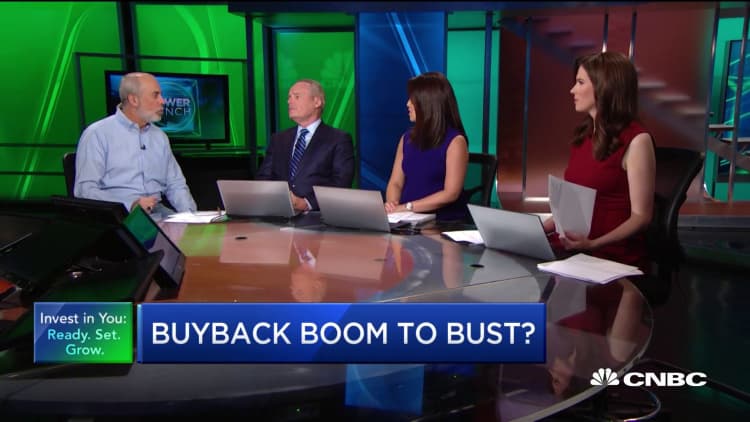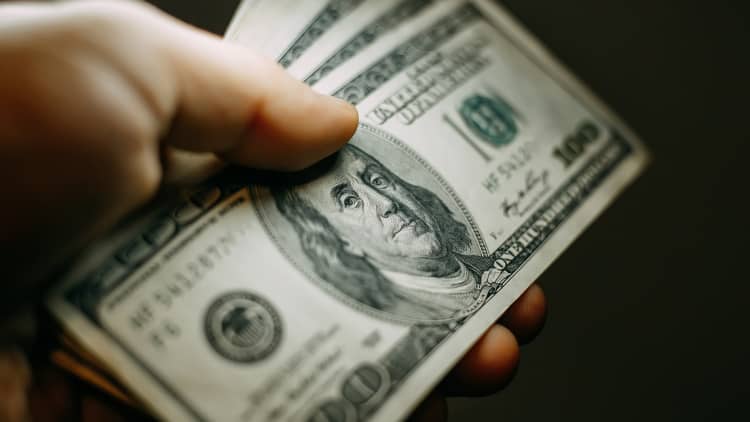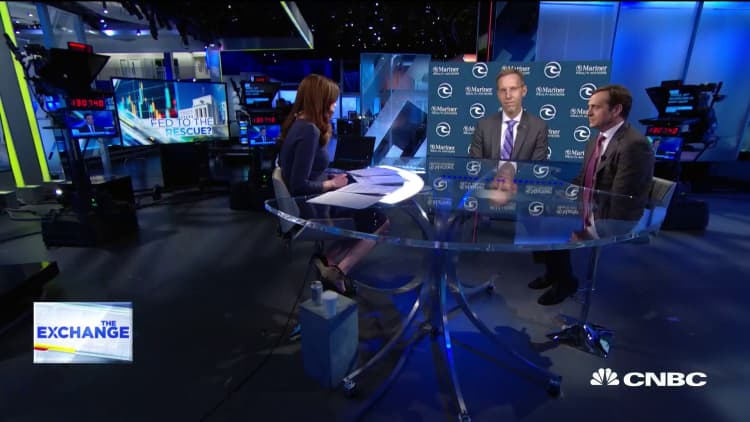Share buybacks, one of the key building blocks for the nearly 11-year bull market run, have gotten off to a slow start in 2020 that, if sustained, could pose a threat to the Wall Street rally.
Companies in January announced just $13.7 billion of repurchases, the slowest opener since 2013 and coming off a 2019 that saw a 30% drop-off from the previous year, according to AllianceBernstein. Despite a considerable bout of volatility, the market nonetheless had a solid January, rising about 1.2%.
Still, the weak buyback start is cause for some concern.
"If this is a sign of a much lower run rate of buybacks it would be worrying given how dependent the market is on corporate buying of equities," AB strategist Mark Diver said in a note. "We do not think this is the case."
One positive is that February thus far has seen a much stronger appetite for share buybacks, with $34 billion announced through Feb. 14.
Diver sees a chance that some companies may have been holding off in January before announcing buybacks and may start ramping them up as opportunity presents itself.
"Companies with large buyback programs are perhaps becoming more discerning in the timing of execution of their buyback programs and maybe delaying repurchases until a more attractive entry point presents itself," he wrote, adding that, "This seems plausible to us and at least a partial explanation of the weak data in January."

The trend comes after a solid $700 billion year for repurchases. That was down from the $1 trillion in 2018, though that figure may have been inflated due to the repatriation incentive in the 2017 tax cut bill.
Moreover, the previous two years show that buybacks are no guarantee for market success: The $1 trillion was for naught in a year that saw the S&P 500 lose nearly 7%, while last year's seeming decline coincided with a robust nearly 30% rise in the large-cap index.
Conflict over buybacks
There's also conflicting sentiment in the market regarding the efficacy of buybacks.
Fund managers in the monthly Bank of America survey continually say they'd rather see corporate cash devoted to capital expenditures and paying down debt. In the February survey, 42% of professional investors say they want want money spent on rebuilding balance sheets, while 40% said capex. Just 15% advocated returning money to shareholders through buybacks and dividends.

Still, Diver said the market continues to reward buybacks.
Companies highest on that list so far in 2020 include ConocoPhillips, Verizon, Bristol-Myers Squibb, HCA Healthcare and Brookfield Property Partners.
In addition, Diver pointed out that some of the companies that announced big buybacks last year had not completed them. Included on that list are CSX, Lam Research, Charles Schwab and Lennar.
Diver said buybacks "have grown to become the single most important source of demand for US Corporate equity, especially in recent years when some traditional sources of demand such as active mutual funds and pension funds have been net sellers."
Since 1950, share repurchases have funneled $7 trillion to the market, he added.



